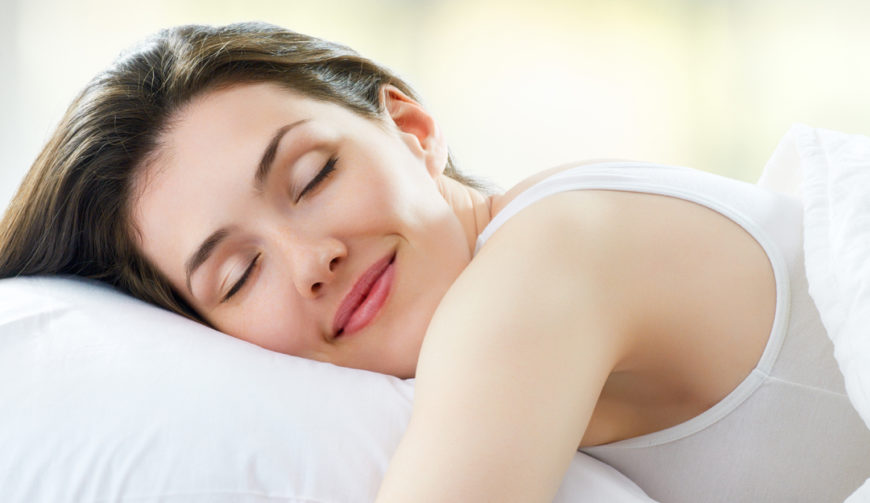Sleep, we all need it but do we get enough? Sleep is an important part of our optimal health. Adult’s need 7 to 9 hours of sleep a night and I bet many of you do not get do not come close to this. Not only do we need 7 to 9 hours of sleep but the quality is also important. Research is now showing an increase in many health issues related to regular sleep deprivation. Your cardiovascular health can be affected along with diabetes, decreased immune system, depression and obesity. Along with depression many people feel more stressed and irritable making it harder to function throughout the day.
How you feel during the day can depend on how well you sleep at night. What we do throughout our day can have a huge impact on how we sleep. You may have to experiment with what works best for you to obtain a good night’s sleep. There are many things we can to improve our quality of sleep.
• Strive for a consistent bedtime and awake time. Do not be tempted to sleep in on the weekends. If you need to change your wake and sleep time try varying at 15 minutes increments. Napping can help if you missed a few hours here and there. It can re-charge you without disrupting you sleep and awake times. If you have insomnia napping could make it worse however. If you get tired after dinner and are tempted to go to bed get up and do an activity.
• Remove television, computers and smartphones from the bedroom, there presence can be too stimulating. Their light can also be disruptive to a good night’s sleep. Melatonin is you body’s natural hormone that helps regulate your sleep. Melatonin production in your body is controlled by light. Let as much light into your home/work environment during the day and decrease light exposure at night.
• Keep your bedroom dark, cool and quiet. If you cannot remove outside noise use earplugs, a fan or white noise. Most people sleep better in a cool room. Your quality of sleep can decline if it is too hot or cold. A good mattress and pillow are also important. Keep work out of the bedroom, use for sleep and sex only.
• Approximately one hour prior to bedtime start to unwind from the day, do a relaxing activity. Take a warm bath, listen to music, read a book with a soft light or listen to one on tape.
• Limit caffeine to morning and early afternoon. Cut back on overall consumption if needed.
• Eat a well-balanced diet and avoid eating 2 to 3 hours before bedtime. Avoid a heavy meal at night especially spicy and fatty meals. Limit alcohol especially close to bedtime. It may help you fall asleep quickly but it reduces your sleep quality and wakes you up later at night. For some people a light snack at night can be helpful such as a banana, granola with yogurt or low-fat milk, small turkey sandwich or whole-rain, low-sugar cereal. For others it can lead to indigestion.
• Non caffeinated herbal tea can be relaxing at night and help you sleep. Be careful not to drink too many fluids at night though, it could wake you up to use the restroom.
• Smoking can disrupt your sleep as nicotine is a stimulant. See your healthcare provider for help and tips to quit smoking.
• Get regular exercise, if you are able it is best to exercise in the morning or early afternoon. Yoga and Tai Chi are great forms of exercise and can be relaxing. Twenty to 30 minutes of activity a day can be beneficial. You can break it up if you need to.
• Get your anxiety and stress under control, it is important in order to get a good night’s sleep. If you are unable to do this on your own you may need help with stress management. See your health care provider. Beneficial relaxation techniques include deep breathing, progressive muscle relaxation and visualizing a peaceful and restful place.
• If you wake up in the middle of the night stay in bed, try relaxation techniques if you cannot fall back asleep, if you wake up anxious about something write down the issue and deal with it the next morning when you are fresh. If you have been awake for over 15 minutes consider reading a book in bed with dim light, avoid a screen of any kind.
• There are different supplements that can help improve your sleep, consult with your health care provider.
• New research is promising for seniors, drinking two eight ounce glasses of Montmorency cherry juice at night has been shown to improve sleep. My neighbor swears by this.
See you healthcare provider if you continue to have difficulty sleeping, falling asleep or staying asleep especially if you have any of the following symptoms: Snoring, pauses in breathing at night, daytime fatigue, frequent morning headaches, acting out dreams while you are sleeping, crawling sensation of arms and legs at night, difficulty moving while falling asleep or waking up and falling asleep during the day.
Here’s to getting a good night’s sleep.

